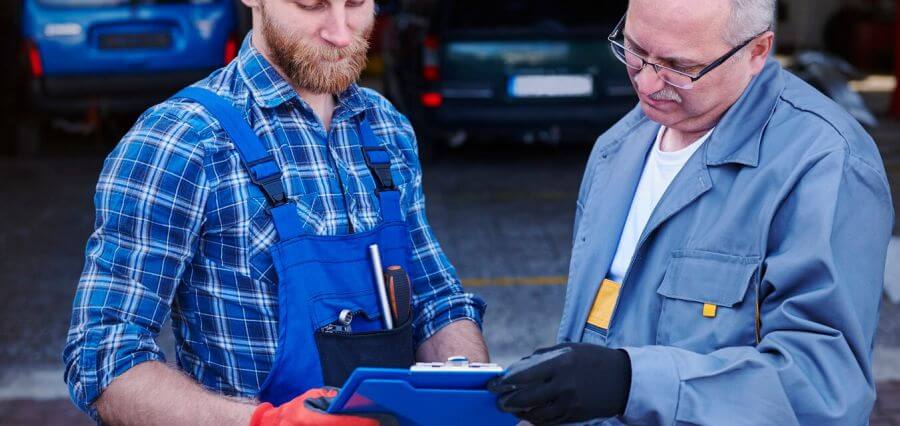Maintaining your car is crucial for ensuring its longevity and performance. Regular maintenance can prevent costly repairs and keep your vehicle running smoothly. Here are some essential car maintenance tips every driver should know.
Regular Oil Changes
Oil is the lifeblood of your car’s engine. It lubricates the moving parts, reduces friction, and helps keep the engine cool. Over time, oil breaks down and becomes less effective. Regular oil changes are essential to keep your engine running smoothly.
How Often Should You Change Your Oil?
- Conventional Oil: Every 3,000 to 5,000 miles
- Synthetic Oil: Every 7,500 to 10,000 miles
Check your owner’s manual for the manufacturer’s recommendations.
Tire Maintenance
Your tires are the only part of your car that touches the road, so keeping them in good condition is vital for safety and performance.
Tire Pressure
Underinflated tires can lead to poor fuel economy and increased wear, while overinflated tires can reduce traction and cause a harsh ride. Check your tire pressure monthly and keep it at the recommended level.
Tire Rotation
Rotating your tires helps ensure even wear and extends their lifespan. Most manufacturers recommend rotating your tires every 6,000 to 8,000 miles.
Brake Maintenance
Your brakes are one of the most critical safety features of your car. Regular brake maintenance can prevent accidents and costly repairs.
Signs of Brake Problems
- Squeaking or Grinding Noises: These sounds can indicate worn brake pads.
- Vibration: If you feel a vibration when braking, it could be a sign of warped rotors.
- Soft Brake Pedal: A soft or spongy brake pedal can indicate air in the brake lines or a problem with the master cylinder.
Fluid Checks
Your car relies on various fluids to operate correctly. Regularly checking and topping off these fluids can prevent breakdowns and extend the life of your vehicle.
Essential Fluids to Check
- Engine Oil: Check the level and color regularly.
- Coolant: Ensure the coolant level is between the minimum and maximum marks.
- Brake Fluid: Check the level and look for any signs of contamination.
- Transmission Fluid: Check the level and color according to your owner’s manual.
- Power Steering Fluid: Ensure the level is within the recommended range.
Battery Maintenance
A dead battery can leave you stranded. Regular battery maintenance can help prevent unexpected breakdowns.
Tips for Maintaining Your Battery
- Clean the Terminals: Corrosion on the battery terminals can prevent your car from starting. Clean the terminals regularly with a mixture of baking soda and water.
- Check the Charge: Use a multimeter to check the battery’s charge. A fully charged battery should read around 12.6 volts.
- Replace When Necessary: Most car batteries last between 3 to 5 years. If your battery is older, consider replacing it before it fails.
Air Filter Replacement
A clean air filter ensures your engine gets the air it needs to run efficiently. A dirty air filter can reduce fuel economy and performance.
When to Replace Your Air Filter
Most manufacturers recommend replacing the air filter every 12,000 to 15,000 miles. Check your owner’s manual for specific recommendations.
Lights and Wipers
Your car’s lights and wipers are essential for visibility and safety. Regularly check and replace them as needed.
Light Check
- Headlights: Ensure both high and low beams are working.
- Brake Lights: Check that all brake lights illuminate when you press the brake pedal.
- Turn Signals: Ensure all turn signals are functioning correctly.
Wiper Blades
Replace your wiper blades every 6 to 12 months or if they leave streaks on your windshield.
Professional Inspections
While regular maintenance can prevent many issues, it’s also essential to have your car inspected by a professional. A professional mechanic can identify potential problems before they become serious.
What to Expect During an Inspection
- Brake Inspection: Checking the condition of brake pads, rotors, and fluid.
- Suspension Check: Inspecting shocks, struts, and other suspension components.
- Exhaust System: Checking for leaks or damage.
- Engine Diagnostics: Using diagnostic tools to check for any engine issues.
Conclusion
Regular car maintenance is essential for keeping your vehicle in top condition. By following these tips, you can prevent costly repairs and ensure your car runs smoothly for years. Whether you’re dealing with routine tasks or more complex issues, such as auto repair St George UT, staying on top of maintenance can save you time and money in the long run.









